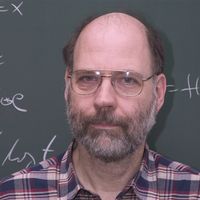
Max-Planck-Institut für Mathematik in den
Naturwissenschaften
Inselstraße 22-26
04103 Leipzig
Germany
![]() 0341/9959750
0341/9959750
![]() 0341/9959999
0341/9959999
![]() Wolfgang.Hackbusch@mis.mpg.de
Wolfgang.Hackbusch@mis.mpg.de
www:
Homepage
PROJECTS
Adaptive solution of
coupled cluster equation and tensor product approximation
of two-electron integrals
PRINCIPAL INVESTIGATOR
 |
Prof. Dr.
Dr. h.c. Wolfgang Hackbusch Max-Planck-Institut für Mathematik in den Naturwissenschaften Inselstraße 22-26 |
TOGETHER WITH
 |
Prof. Dr.
Reinhold Schneider Christian-Albrechts-Universität zu Kiel Institut für Informatik Christian-Albrechts-Platz 4 |
| Dr. Heinz-Jürgen
Flad Max-Planck-Institut für Mathematik in den Naturwissenschaften Inselstr. 22-26 |
PROJECT RESEARCH ASSISTANT
ABSTRACT
In order to achieve optimal computational complexity in electronic structure
calculations, i.e. linear scaling concerning system size and more general with
respect to the number of degrees of freedom, it is crucial to utilize adaptivity
in various places. Within the first part of our project we want to apply recent
ideas from multiscale analysis to develop adaptive algorithms for coupled
cluster and configuration interaction methods. Here, adaptivity means to
select those excitation amplitudes from the full configuration space which
contribute most to the energy. Such kind of schemes have been already
discussed in the literature, however, we intend to incorporate some new
mathematical insights by selecting amplitudes according to appropriate
norms, and to apply a posteriori error estimators which enable a quantitative
estimate of the remaining approximation error. The second part of our
proposal concerns the efficient computation of two-electron integrals which
constitutes a major bottleneck of standard quantum chemistry methods. We
want to incorporate adaptivity into our previously developed density-fitting
scheme based on optimal tensor product approximations. This can be
accomplished by means of hierarchical tensor product decompositions as
well as adaptive algorithms for convolutions with the Coulomb potential.